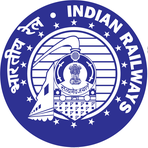Navigating the Currents of Change in India's Infrastructure and Aviation Sectors
August 9, 2024, 9:46 am
India's infrastructure and aviation sectors are in a state of flux. Recent developments reveal both challenges and opportunities. From tender disputes to ambitious airline goals, the landscape is shifting.
The spotlight is on a prominent contractor embroiled in multiple tender disputes. Allegations of irregularities and discrepancies have surfaced, raising alarms about transparency in the tendering process. This situation is akin to a ship caught in a storm, with stakeholders demanding clarity and accountability. Regulatory bodies are now involved, seeking to untangle the web of controversy.
The implications are significant. The integrity of the procurement system is under scrutiny. Calls for reform echo through the corridors of power. The resolution of these disputes is critical. It will shape future procurement practices and restore confidence in the tendering process. Without robust mechanisms, the risk of further disputes looms large.
Meanwhile, the aviation sector is taking flight. Akasa Air, a relatively new player, is setting its sights high. The airline aims to break into the top 30 global airlines by 2030. This ambition is not just a dream; it’s backed by solid achievements. In just two years, Akasa has expanded its reach to 22 domestic and five international destinations. It has carried over 11 million passengers and operates more than 900 weekly flights.
With a market share of 5%, Akasa has surpassed established competitors like SpiceJet. This rapid growth is a testament to its strategic vision and operational efficiency. The airline's journey is a classic underdog story, showcasing how innovation and determination can disrupt the status quo.
In the realm of railways, safety is taking center stage. The tragic Kanchanjungha Express incident has prompted urgent reforms. The introduction of the Kavach automatic train protection system is a proactive step towards enhancing safety protocols. This system will be deployed across 5,000 kilometers of track, equipping 10,000 locomotives with cutting-edge technology.
The new guidelines aim to clarify speed and safety protocols for loco pilots during signal failures. This initiative is crucial for preventing future accidents and ensuring passenger safety. The railway minister's commitment to these reforms signals a shift towards a more responsible and safety-conscious approach in Indian railways.
In another positive development, the Rapid Metro Rail Gurgaon Limited (RMGL) has reported a surge in revenue. For the first quarter of the 2024-25 financial year, total revenue increased by 10.49% year-over-year. This growth is attributed to an 8.75% rise in ridership, reflecting a growing reliance on metro services in urban areas.
The rise in passenger numbers indicates a shift in public transport preferences. As cities expand, efficient metro systems become vital. The success of the Rapid Metro is a beacon of hope for urban transport solutions across India.
On the energy front, IIT Madras Research Park has unveiled a groundbreaking 1 MW indigenous battery storage system. This innovation is a game-changer for energy management in India. Developed entirely in the country, it addresses critical challenges in energy storage.
The new system will enhance the reliability of power supply, especially from renewable sources like solar and wind. By storing excess energy, it stabilizes the grid and ensures a continuous power supply. This advancement underscores India's growing capabilities in developing homegrown solutions for energy needs.
As the system becomes operational, it is expected to set a benchmark for future innovations in battery storage technology. The commitment to advancing energy technology reflects a broader trend towards sustainability and self-reliance in India.
In summary, India's infrastructure and aviation sectors are navigating a complex landscape. The challenges posed by tender disputes highlight the need for reform and transparency. Meanwhile, the ambitious goals of Akasa Air and the proactive safety measures in railways demonstrate a commitment to progress.
The surge in revenue for Rapid Metro and the innovation at IIT Madras signify a bright future for urban transport and energy management. As these sectors evolve, they will play a crucial role in shaping India's economic landscape. The journey ahead is fraught with challenges, but the potential for growth and innovation is immense.
India stands at a crossroads. The choices made today will determine the trajectory of its infrastructure and aviation sectors for years to come. With determination and vision, the nation can harness these currents of change to propel itself into a prosperous future.
The spotlight is on a prominent contractor embroiled in multiple tender disputes. Allegations of irregularities and discrepancies have surfaced, raising alarms about transparency in the tendering process. This situation is akin to a ship caught in a storm, with stakeholders demanding clarity and accountability. Regulatory bodies are now involved, seeking to untangle the web of controversy.
The implications are significant. The integrity of the procurement system is under scrutiny. Calls for reform echo through the corridors of power. The resolution of these disputes is critical. It will shape future procurement practices and restore confidence in the tendering process. Without robust mechanisms, the risk of further disputes looms large.
Meanwhile, the aviation sector is taking flight. Akasa Air, a relatively new player, is setting its sights high. The airline aims to break into the top 30 global airlines by 2030. This ambition is not just a dream; it’s backed by solid achievements. In just two years, Akasa has expanded its reach to 22 domestic and five international destinations. It has carried over 11 million passengers and operates more than 900 weekly flights.
With a market share of 5%, Akasa has surpassed established competitors like SpiceJet. This rapid growth is a testament to its strategic vision and operational efficiency. The airline's journey is a classic underdog story, showcasing how innovation and determination can disrupt the status quo.
In the realm of railways, safety is taking center stage. The tragic Kanchanjungha Express incident has prompted urgent reforms. The introduction of the Kavach automatic train protection system is a proactive step towards enhancing safety protocols. This system will be deployed across 5,000 kilometers of track, equipping 10,000 locomotives with cutting-edge technology.
The new guidelines aim to clarify speed and safety protocols for loco pilots during signal failures. This initiative is crucial for preventing future accidents and ensuring passenger safety. The railway minister's commitment to these reforms signals a shift towards a more responsible and safety-conscious approach in Indian railways.
In another positive development, the Rapid Metro Rail Gurgaon Limited (RMGL) has reported a surge in revenue. For the first quarter of the 2024-25 financial year, total revenue increased by 10.49% year-over-year. This growth is attributed to an 8.75% rise in ridership, reflecting a growing reliance on metro services in urban areas.
The rise in passenger numbers indicates a shift in public transport preferences. As cities expand, efficient metro systems become vital. The success of the Rapid Metro is a beacon of hope for urban transport solutions across India.
On the energy front, IIT Madras Research Park has unveiled a groundbreaking 1 MW indigenous battery storage system. This innovation is a game-changer for energy management in India. Developed entirely in the country, it addresses critical challenges in energy storage.
The new system will enhance the reliability of power supply, especially from renewable sources like solar and wind. By storing excess energy, it stabilizes the grid and ensures a continuous power supply. This advancement underscores India's growing capabilities in developing homegrown solutions for energy needs.
As the system becomes operational, it is expected to set a benchmark for future innovations in battery storage technology. The commitment to advancing energy technology reflects a broader trend towards sustainability and self-reliance in India.
In summary, India's infrastructure and aviation sectors are navigating a complex landscape. The challenges posed by tender disputes highlight the need for reform and transparency. Meanwhile, the ambitious goals of Akasa Air and the proactive safety measures in railways demonstrate a commitment to progress.
The surge in revenue for Rapid Metro and the innovation at IIT Madras signify a bright future for urban transport and energy management. As these sectors evolve, they will play a crucial role in shaping India's economic landscape. The journey ahead is fraught with challenges, but the potential for growth and innovation is immense.
India stands at a crossroads. The choices made today will determine the trajectory of its infrastructure and aviation sectors for years to come. With determination and vision, the nation can harness these currents of change to propel itself into a prosperous future.


